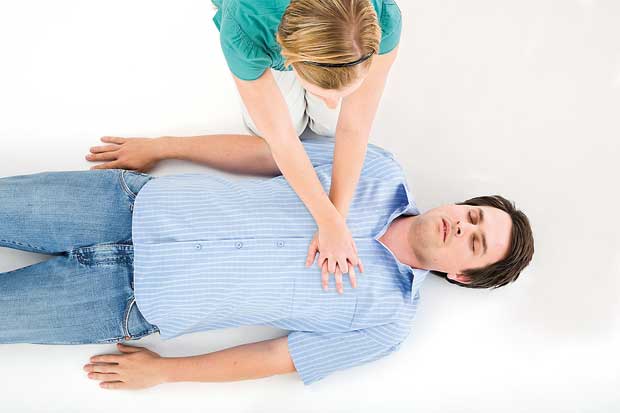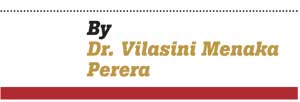Reply To:
Name - Reply Comment
Last Updated : 2024-04-20 00:00:00

I was listening to the radio “Corrupt specialist doctor got caught while taking bribes”. This story went viral on social media. The radio station gave the full story of his behaviour with evidence. It was a shame to the whole of medical profession that prompted me to write about medical ethics. I sat down with a book titled ‘great traditions in ethics’. Suddenly I saw some nurses and a young doctor running towards a patient, there was a sudden cardiac (heart) arrest. The doctor without thinking twice started resuscitating the patient. The poor old patient’s clothes were soiled with faecal matter, vomit and saliva.
The smell was unbearable. The young doctor was resuscitating even without gloves. I saw his tie, shirt and the trouser all stained with the secretions from the patient. The doctor quickly cannulated the patient and restarted his care up to the maximum with pouring sweat. After everything was over, he  went to the tap, to see he needs to take a bath. Unfortunately he cannot leave the ward. I slowly started my conversation with him.
went to the tap, to see he needs to take a bath. Unfortunately he cannot leave the ward. I slowly started my conversation with him.
“It’s faeces, vomit and saliva on your hands; you need to take a bath, isn’t it?”
“It’s ok, I used to work with my father in his paddy field in the mud and in the hot sun, and I’m used to it.”
The both these doctors were products of free education in Sri Lanka. The first specialist as far as I know has come with flying colours in undergraduate and postgraduate examinations.
When it comes to SAITM issue, where do I stand was with the universal declaration of Human Rights -Article 26.
“Everyone has the right to education. Education shall be free, at least in the elementary and fundamental stage. Elementary education shall be compulsory. Technical and professional education shall be made generally available and higher education shall be equally accessible to all on the basis of merit.”
“Education shall be directed to the full development of the human personality and to the strengthening of respect of human rights and fundamental freedoms.”
We think we have a fair, just and transparent system of “merit” to enter into medical schools-though our district quota system has its limitations. When I entered the university, I felt it was the power of cramming and memorising that they checked at the examinations.
Although medicine is based on facts, the exercising of these facts requires articulate thinking, balance and judgement, which are informed by ethical considerations.
An individual wishing to become a healthcare professional has to learn the principles by which the profession works. For healthcare, these include many fundamental issues in philosophy such as humanity, personhood, relationships and society, as well as morality and regulation.
Medicine is unique in many ways, dealing as it does quite literally with matters of life and death. Even if the gravity of this is recognised, it is and will remain a fallible practice.
To expect doctors to never make mistakes, while at the same time acknowledging, that ‘to err is human’, appears to be logically inconsistent.
Lord Justice Nourse once said ‘Of all sciences, medicine is one of the least exact’. Others have suggested that it is overly simplistic to regard medicine simply as a science, suggesting instead that it is a discrete discipline that draws on many others.
The Law of Hippocrates states “Medicine is of all the arts the most noble, but, owing to the ignorance of those who practice it and of those who inconsiderately, form a respect by all men, in all times but should I trespass and violate this oath, may the reverse be my lot”
In Canada, at graduation, civil engineers are given a ring to wear throughout their lives. The metal from which these rings are made comes from a bridge which collapsed, causing many deaths.
By way of analogy, doctors who forget the fundamental ethical principles to which they subscribe at graduation will be liable to cause unnecessary suffering, and even death.
In our professional lives as doctors, we will regularly encounter problems that require us to make difficult decisions. There will be times when we are not certain what the best choice of action ought to be. There are times when our own choices, beliefs and values do not coincide with those of others. Such conflicts will arise with colleagues, other professionals, superiors, accepted guidelines and most significantly with patients.
Ordinarily, we tend to rely on our own intuitions and beliefs to settle these problems, but when conflicts arise they may be counterproductive to fall back on these very beliefs that are causing the conflict in the first place. Thus we require other approaches for decision making.
Science can not address all the problems encountered in healthcare. There are issues that must be covered by the Art of Medicine.
The three rules i.e., laws, professional codes and guidelines, the principles and theories of ethics can be recruited to assist our own natural decision making abilities, which include common sense, personal beliefs and the factual scientific knowledge.
As it stands today, we have no absolutes for handling difficult decisions, there are no clear signposts and there is no unequivocal way. If we did have formula answers for them, the decisions wouldn’t be difficult.
Finally I would like to highlight a part of oath and Law of Hippocrates,
“Whoever is to acquire a competent knowledge of medicine, ought to be possessed of the following advantages: a natural disposition, instruction; a favourable position for the study, early tuition; love of labour; leisure.”
“First of all, a natural talent is required, for when nature leads the way to what is most excellent, instruction in the art takes place, which the student must try to appropriate to himself by reflection, becoming an early pupil in a place well adapted for instruction. He must also bring to the task a love of labour and perseverance, so that the instruction taking root may bring forth proper and abundant fruits.”
“Having brought all these requisites to the study of medicine, and having acquired a true knowledge of it, we shall thus in travelling through the cities, be esteemed physicians not only in name but in reality. Those things which are sacred are to be imparted only to sacred persons, and it is not lawful to impart them to the profane until they have been initiated into the mysteries of the science.”

Add comment
Comments will be edited (grammar, spelling and slang) and authorized at the discretion of Daily Mirror online. The website also has the right not to publish selected comments.
Reply To:
Name - Reply Comment
On March 26, a couple arriving from Thailand was arrested with 88 live animal
According to villagers from Naula-Moragolla out of 105 families 80 can afford
Is the situation in Sri Lanka so grim that locals harbour hope that they coul
A recent post on social media revealed that three purple-faced langurs near t